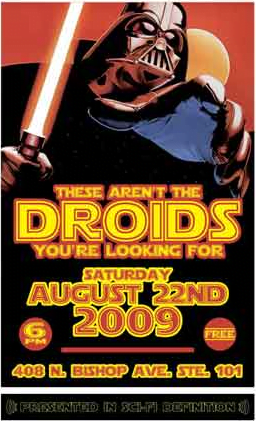
A while back we published a post called “Think nobody clicks on Google ads? Think again!” This post was based on original research revealing that roughly two-thirds of clicks for search queries with high commercial intent go to sponsored results.
Recently, a new, related report has been making the rounds. This study, carried out by GroupM UK and Nielsen, reports that 94% of total search engine clicks go to organic results, with just 6% of click share left for paid search ads.
This seems to contradict our results – one cheeky lad tweeted the link directly to us – but does it?
In the strictest sense – just, you know, in terms of facts – the answer is no. The GroupM study was looking at overall click distribution in the UK over a one-month period, totaling 1.4 billion search queries in June 2011. Our research, on the other hand, was focused on just one type of query – those with high commercial intent, defined simply as keyword searches with significant advertiser competition that trigger a Google Shopping or Google Product Listing ad. We also looked at US data only over a 60-day period.
But that’s just stating the obvious (assuming you bother to read the fine print). More importantly, I’d argue that the figures for overall click distribution aren’t relevant for most PPC advertisers, or businesses that could be using PPC but aren’t yet taking full advantage of it.
SEO vs. PPC: Query Type Matters
Why aren’t they relevant? Because most search queries are not commercial or transactional in nature. Most search queries are informational or navigational. It’s difficult to find exact figures on what percentage of search queries are commercial – partly because deriving intent from a search query alone is always something of a guessing game. However, one survey found that about 25% (1 in 4) of search queries are navigational, i.e. people who want to find a specific website, while 68% (over 2/3) are informational, i.e. people who just want general information on a topic. That only leaves 7% of searches with commercial intent, i.e. people who want to buy something. (Purely coincidence I’m sure, but notice that the percentage of commercial search queries, according to this survey, is very close to the percentage of total clicks that go to paid results, according to the study quoted above.)
You can get a picture of what most search queries look like by playing with Google Insights for Search. For example, in the last 90 days, the top 10 search terms in the US were:
- you
- youtube
- yahoo
- craigslist
- lyrics
- weather
- games
- news
By my lights, the top 6 are clearly navigational (“you” is very likely people who just don’t finish typing “youtube” because the instant results load first). The last four are very broad informational queries. The only one that could potentially be considered commercial is “games.” If you look at the “rising searches” (i.e. queries showing large growth) those tend to be all informational too (for example “olympics,” “miley cyrus”).
My point is, if you’re a business owner or marketer and you’re trying to decide whether PPC can work for you, the fact that most clicks go to organic results is not a relevant factor in your decision. Most clicks derive from searches that would never be valuable to your business anyway.
Focus on the Queries that Matter for Your Business
So, coming back to that 96% figure – the finding that the vast majority of clicks go to organic results. Is it interesting data? Sure. Should it affect your decision making when it comes to PPC? Not really.
I’m not saying you should abandon SEO and only do PPC. (Really, I’m not.) And informational queries can still bring valuable, relevant traffic to your site – it’s absolutely worth your while to create content that ranks organically for relevant informational queries. But when it comes to commercial queries that are relevant to your business, don’t neglect the power of PPC.







